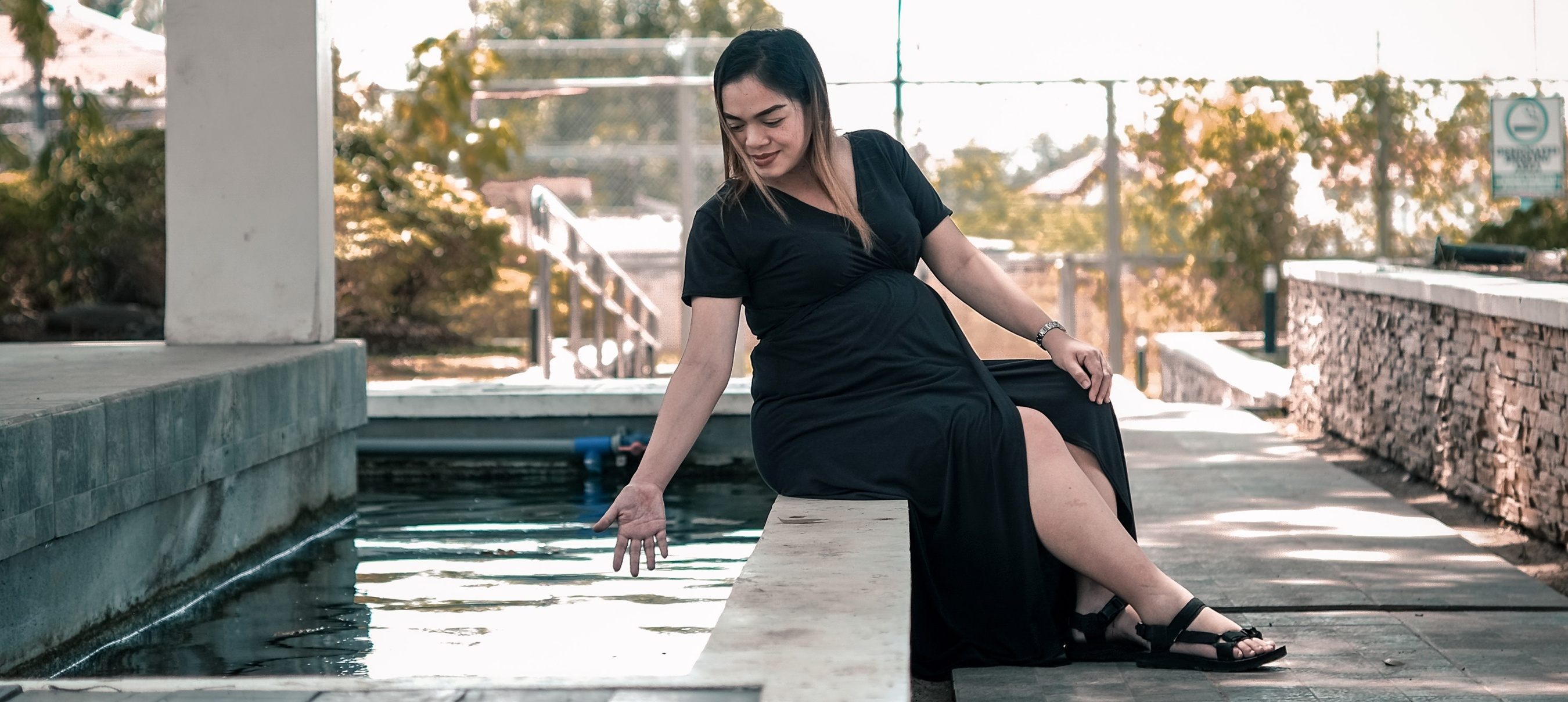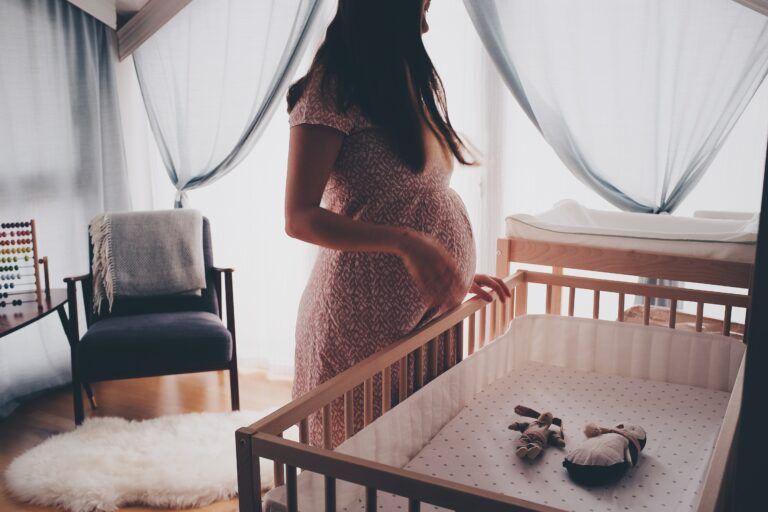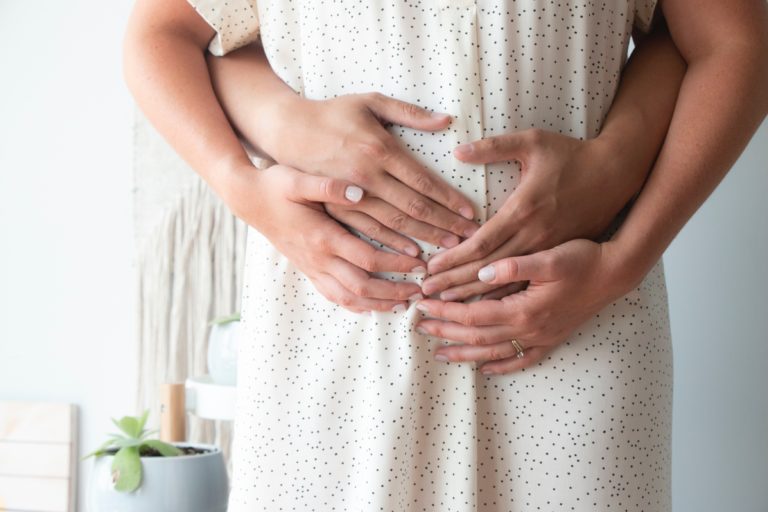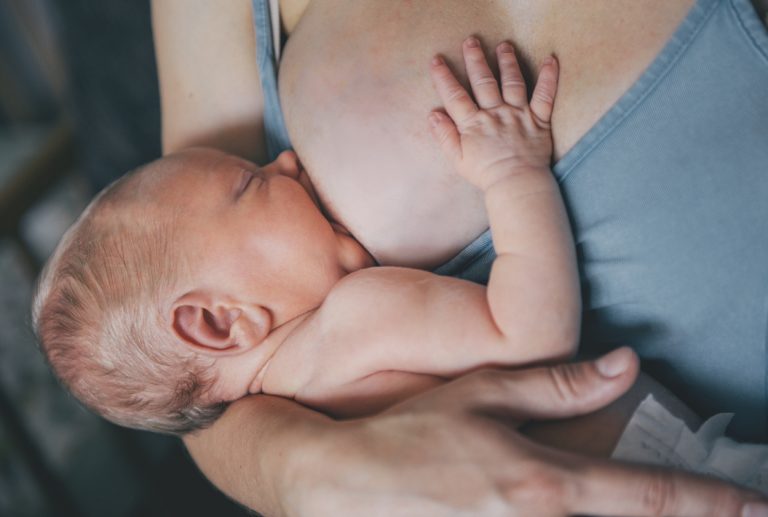When entering the second trimester of pregnancy, approximately weeks 12 – 24, the draining symptoms of the first trimester have for most become a memory. Many find this period the “honeymoon stage,” the most enjoyable part of pregnancy. With an upsurge in energy, many find it is now easier to eat, sleep, and work. Your family and friends may comment on how wonderful you look and you may hear “pregnancy really becomes you.” Your hair seems shinier and thicker, and your skin glows.
During this second trimester, you may experience “quickening” or the first noticeable fetal movements. You may start to notice a definite belly and begin to look pregnant – changes that can help you feel more positive and excited. By this time you have probably gained about 8 – 10 pounds, a sign that your baby is growing and is surrounded by a healthy, nourishing, protective, support system of placenta, amniotic fluid, and an enhanced blood supply.
This beautiful transformation, however, will be accompanied by expected and unexpected physical changes, some welcomed, some not so much. It’s always better to know in advance what is normal, what will pass, and what to do to prevent or minimize these changes. It’s also helpful to know when we, at the Yinova Center, can help and when to seek medical attention.
We can help treat one of the more commonly reported conditions: varicose veins
An increase in blood volume, familial predisposition, and standing for long periods of time may contribute to the reasons why some people experience varicose veins in some or all presentations including hemorrhoids (varicose veins of the anus) and vulval varicosities (varicose veins occurring in the labia). There is a wide range of how varicose veins present. Some people may only experience one or two slightly distended veins with a distinct blue tinge, perhaps behind the knee or some other part of the lower leg, or as multiple distinct veins bulging and twisted.
Varicose veins occur during pregnancy for a number of reasons:
- First, there seems to be a very strong familial tendency.
- Second, as your pregnancy progresses, there is an increased blood volume, increased weight concentrated in the abdomen, and a corresponding increased physical demand involved in returning blood to the heart, especially from the lower extremities.
- Finally, the hormones of pregnancy (progesterone and relaxin) soften the smooth muscle tissue found in the muscle layers of blood vessels, as well as the tough collagenous tissue of the body. These hormones affect the valves of the veins that keep the blood on track, moving up toward the heart for oxygenation. If those valves are too relaxed, they don’t close completely when they should and they become lax and inefficient.
Due to the inefficiency of those valves, blood that should be traveling upward from the lower body towards the heart is not held on course at those valve junctions and it begins to pool in parts of the vein furthest from the heart. The pregnancy hormones also affect the surrounding tissues of the vein, like the skin, allowing the pooled blood to stretch the thinned tissue surrounding and covering the vein. And, voila! What we see is a track of bulging blue, a.k.a. a varicose vein. Remember, veins can become large and engorged presenting on the legs, as well as affecting the rectum and vaginal area.
How can we prevent, minimize, or treat these varicosities?
For the thigh and calves, chances are you will already be aware of your propensity toward varicosities if they do indeed run in your family. The good news is that you can be proactive in your efforts to prevent or minimize their occurrence.
- Wearing a good support hose, even to bed, is one of the best ways to avoid them. These pressure stockings place counter pressure to the skin and tissues surrounding the veins, assisting in the return of circulating blood from the legs.
- Avoid crossing your legs at the knees, as this action directly interferes with the free flow of blood.
- Do regular ankle and foot exercises to keep the blood moving this will help reduce swelling and avoid leg cramping.
- Avoid standing for long periods of time.
- While seated, prop your legs up when you can. If you have to sit for long periods of time, get up and walk around regularly.
- Avoid wearing high-heels which reduce the work of the calf muscles in returning blood to the heart.
The most important thing to remember with varicose veins of the lower legs is that you will need to seek medical attention if your leg feels very heavy or painful with marked tenderness, swelling, and a sensation of heat in the area of the thigh or calf. If you notice calf pain that is worse when flexing your toes up, it’s worth giving your doctor or midwife a call, they may want to investigate further by doing an ultrasound to rule out thrombophlebitis (a blood clot), which requires bed rest and medication to thin the blood. Another precaution to note when you have varicose veins of the legs is that massaging of the legs during this time is not advised, either self-massage or a professional one. If there are any small blood clots developing, massaging that ache in your calf may dislodge the clot, sending it into the general circulation where it can cause a host of problems.
If you have hemorrhoids, they may be confined to the anus, or protrude causing discomfort when sitting or moving your bowels. You may at times notice bright red blood after a bowel movement, or you may experience itching and pain. To minimize the development of hemorrhoids, one needs to focus on staying well hydrated, eating a diet high in fiber, fruits, and vegetables and getting daily exercise. Witch hazel applied to the area is soothing, or an essential oil – oil of cypress, applied with a cotton ball. If your hemorrhoids are severe, your doctor or midwife may advise a mild hydrocortisone cream to help reduce inflammation and swelling.
Varicosities of the vulva may appear toward the last couple of months of your pregnancy. They can be quite uncomfortable and interfere with squatting, bending or rising from a seated position. They are not known to bleed and will resolve once the baby is born. In the meantime, the advice is to rest as much as possible, elevate your legs whenever possible and wear your support stockings.
From a traditional Chinese Medicine perspective, varicose veins are the result of the Spleen failing to raise the Qi. The energetics of the Spleen is to hold and maintain the veins in their proper place. If there are also sensations of heaviness, aching, and local swelling, the Qi may be stagnated. If you have hemorrhoids with rectal bleeding or itching, this will indicate a diagnosis of Heat in the Blood or Damp-Heat affecting the Large Intestine. If you are diagnosed with Spleen Qi sinking, you may have a poor appetite, be bloated after eating, feel tired, with heavy limbs and loose stool. What we, at the Yinova Center, will offer is acupuncture to tonify the Spleen, raise Qi, and move the Qi and Blood. We might use points on the back, one below your knee and one on top of your head. We might also apply moxa to those points to assist in raising the Qi.
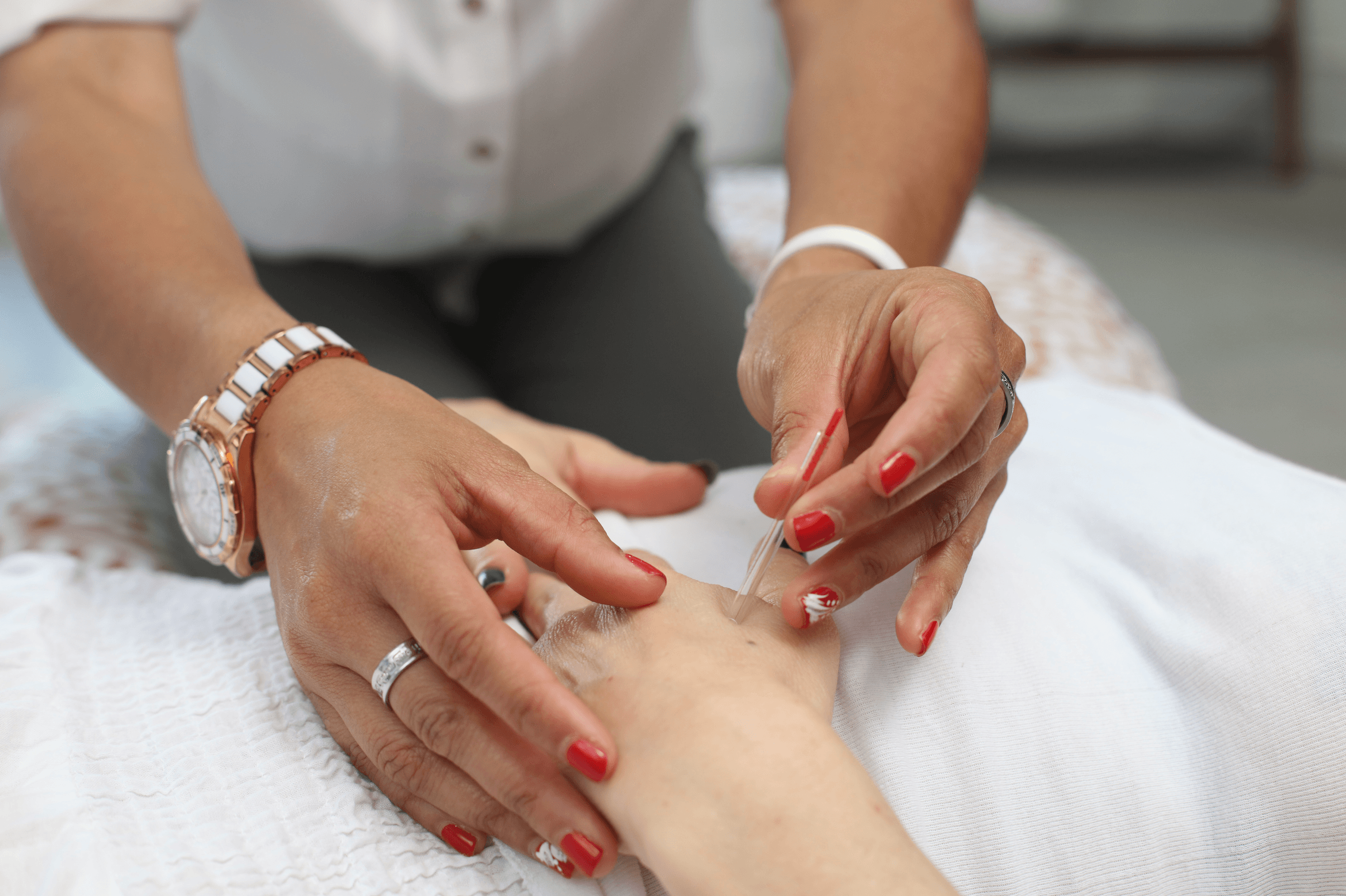
If your Chinese diagnosis is that of Damp-Heat, you may experience intense itching and swelling in the anal area. You may also feel pressure in your bottom and have some bright red blood in your stool. We will again use acupuncture to help clear heat and resolve dampness by using points we know in the foot, lower leg, back, and crook of the arm. After acupuncture, some patients report feeling better the next day, but it may take a few treatments (3-4), for a major change to be noticed. While acupuncture will not “cure” the condition it will help with the pain and can prevent a worsening of symptoms. Weekly treatments are recommended and if started early, acupuncture sessions can be spread out to once every 2 – 3 weeks.
Your job in between acupuncture visits is to pay attention to your diet to prevent constipation, rest as often as possible with your legs elevated, and wear your support hose. When reclined, position yourself in a side-lying posture, preferably the left. Also, try and avoid long periods of sitting or standing. You will find comfort in warm baths with the addition of Epsom salts. You may want to also add loganberries to your diet. Snacking on loganberries, a hybrid of raspberries and blackberries, can help prevent the formation of bulging veins. The credit goes to the fruit’s stores of rutin, a plant compound that strengthens capillary walls and improves circulation to bolster vein health. After all is said and done, remember, this is time-limited and all of these symptoms will generally improve after giving birth. If however, you still have varicose veins on your legs, there are many treatments available to correct and eliminate them.
